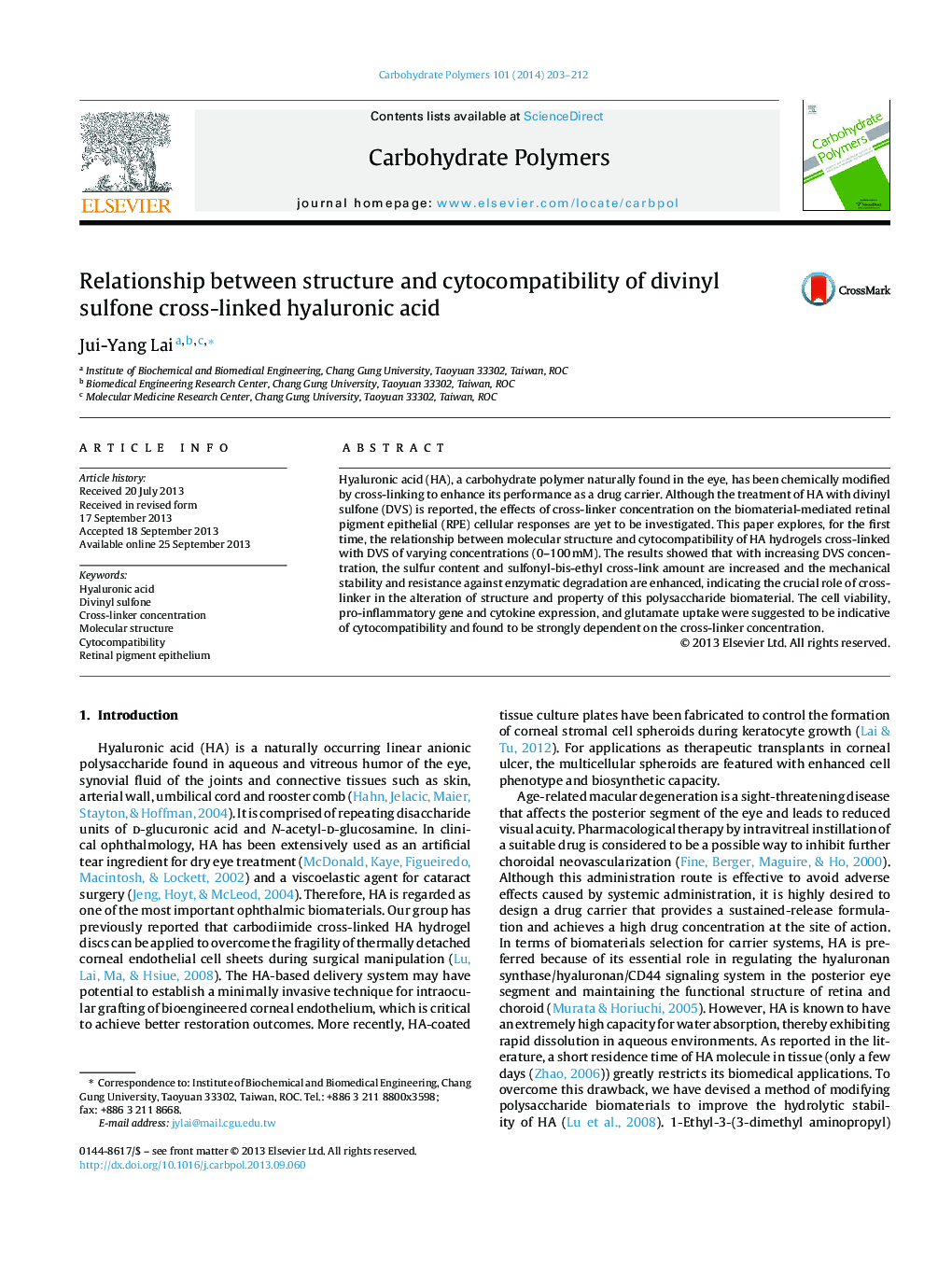| Article ID | Journal | Published Year | Pages | File Type |
|---|---|---|---|---|
| 7792691 | Carbohydrate Polymers | 2014 | 10 Pages |
Abstract
Hyaluronic acid (HA), a carbohydrate polymer naturally found in the eye, has been chemically modified by cross-linking to enhance its performance as a drug carrier. Although the treatment of HA with divinyl sulfone (DVS) is reported, the effects of cross-linker concentration on the biomaterial-mediated retinal pigment epithelial (RPE) cellular responses are yet to be investigated. This paper explores, for the first time, the relationship between molecular structure and cytocompatibility of HA hydrogels cross-linked with DVS of varying concentrations (0-100Â mM). The results showed that with increasing DVS concentration, the sulfur content and sulfonyl-bis-ethyl cross-link amount are increased and the mechanical stability and resistance against enzymatic degradation are enhanced, indicating the crucial role of cross-linker in the alteration of structure and property of this polysaccharide biomaterial. The cell viability, pro-inflammatory gene and cytokine expression, and glutamate uptake were suggested to be indicative of cytocompatibility and found to be strongly dependent on the cross-linker concentration.
Keywords
Related Topics
Physical Sciences and Engineering
Chemistry
Organic Chemistry
Authors
Jui-Yang Lai,
